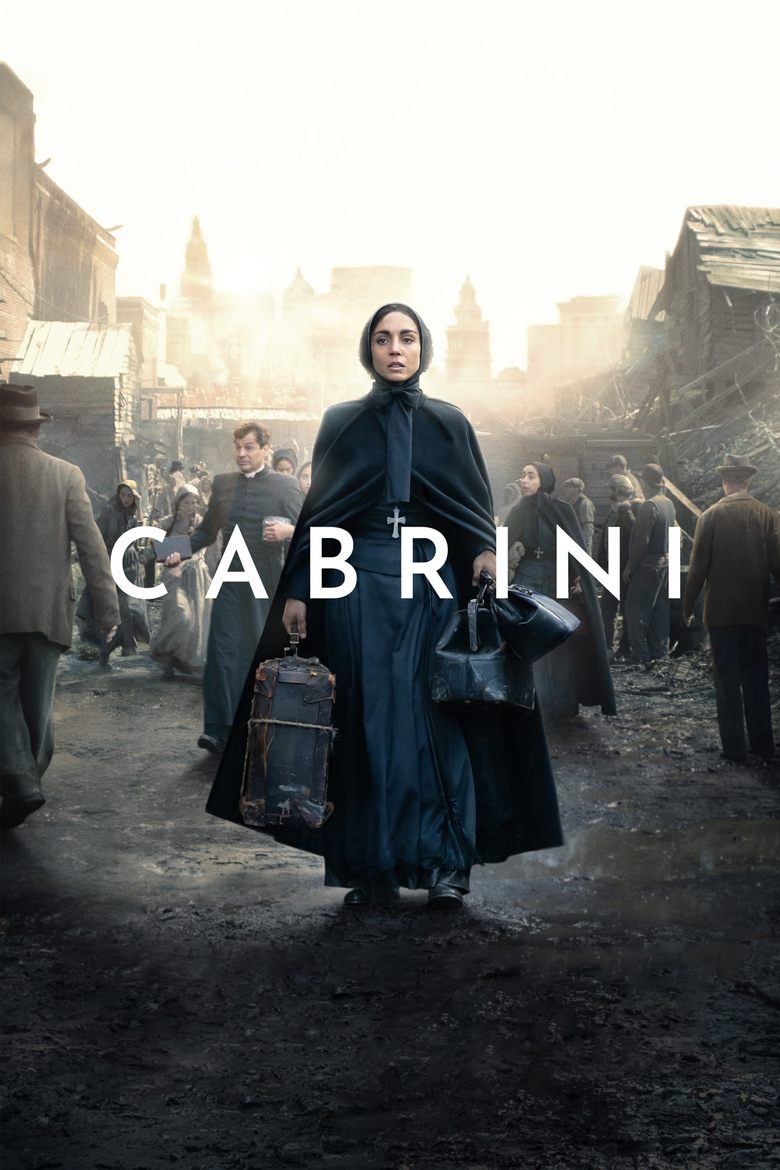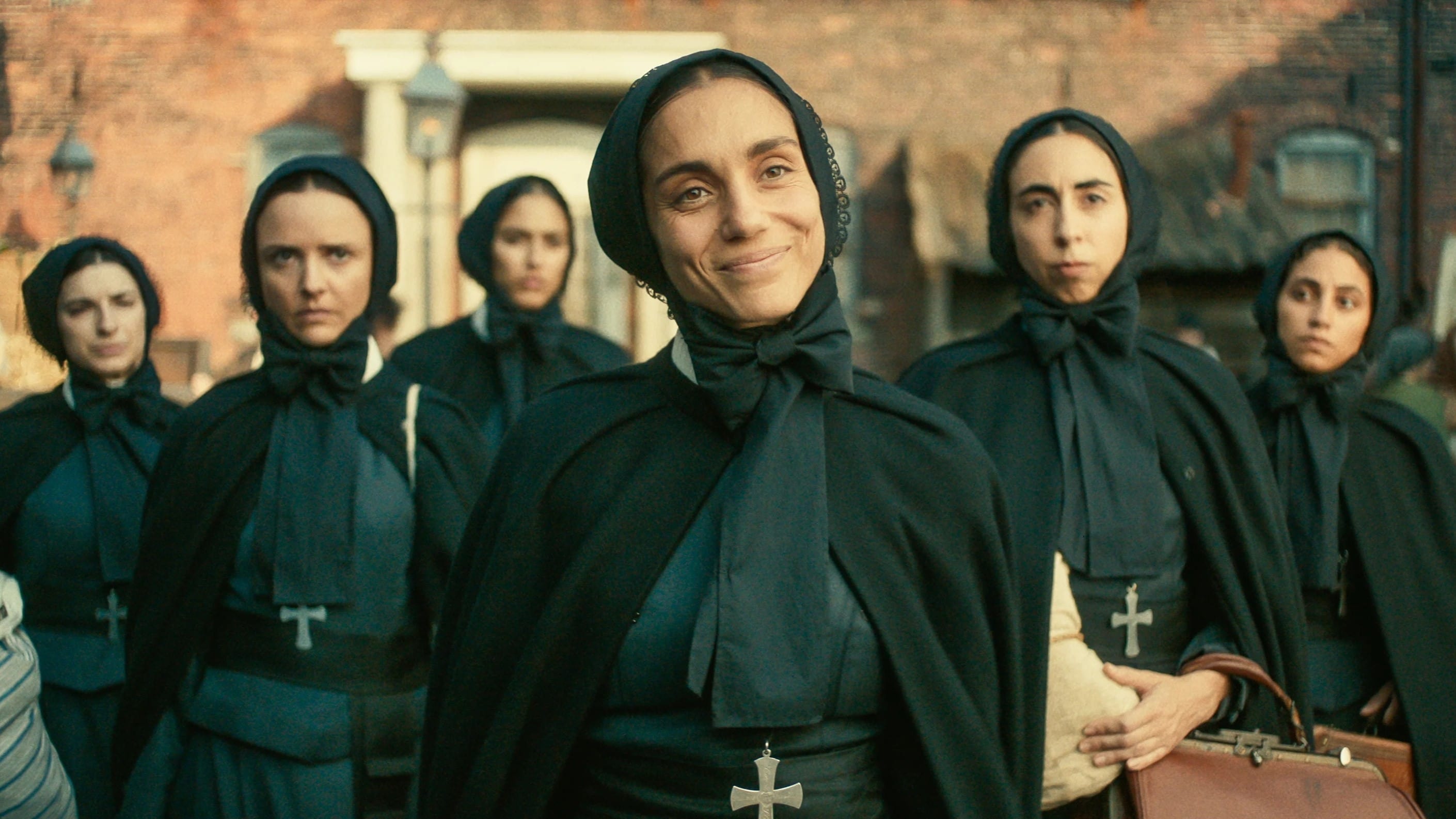Providing care, comfort and compassion to the world’s downtrodden is undoubtedly a noble, if exhausting and often-frustrating, cause, especially when pleas for help go ignored or fall on deaf ears. Yet, every so often, someone comes along who tirelessly keeps on fighting for those less fortunate, as was the case with Italian immigrant Mother Francesca Cabrini (Cristiana Dell’Anna). Upon her arrival in New York in 1889, the diminutive but zealous nun from Lombardy set about her work to care for her fellow countrymen and women (especially orphaned and abandoned children) in desperate need of food, housing and medical care, the first charitable undertaking of what she envisioned becoming a worldwide network of such ventures. She successfully raised awareness of the plight of these emigrees by getting the attention of a New York Times reporter (Jeremy Bobb), an endeavor that garnered support for her efforts and challenged the prejudicial attitudes of the public and New York’s municipal government, including its bigoted, intolerant mayor (John Lithgow). And, through it all, she wrestled with personal health issues that hung over her for many years. Writer-director Alejandro Monteverde’s latest presents a detailed, well-told biography of a woman who wouldn’t give up at a time when the deck was stacked against her, both on the bases of her gender and nationality, as well as (in some cases) as a representative of the Church. The picture’s superb production design, fine period piece production values and gorgeous cinematography lend much to this release, as do the performances of Dell’Anna and Lithgow, along with a host of supporting characters. Despite these strengths, though, this slightly overlong offering has occasional problems with pacing, monodimensional character development, overdramatic elements (particularly in the soundtrack) and an underdeveloped back story. At the same time, however, “Cabrini” tells an inspiring and uplifting tale of someone who accomplished a lot but hasn’t really received the attention she’s due. This film helps to make up for that oversight while reminding us all that we can play a part in fulfilling her dream of genuinely creating an empire of hope for the world.



